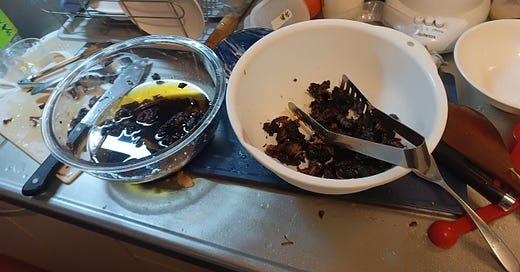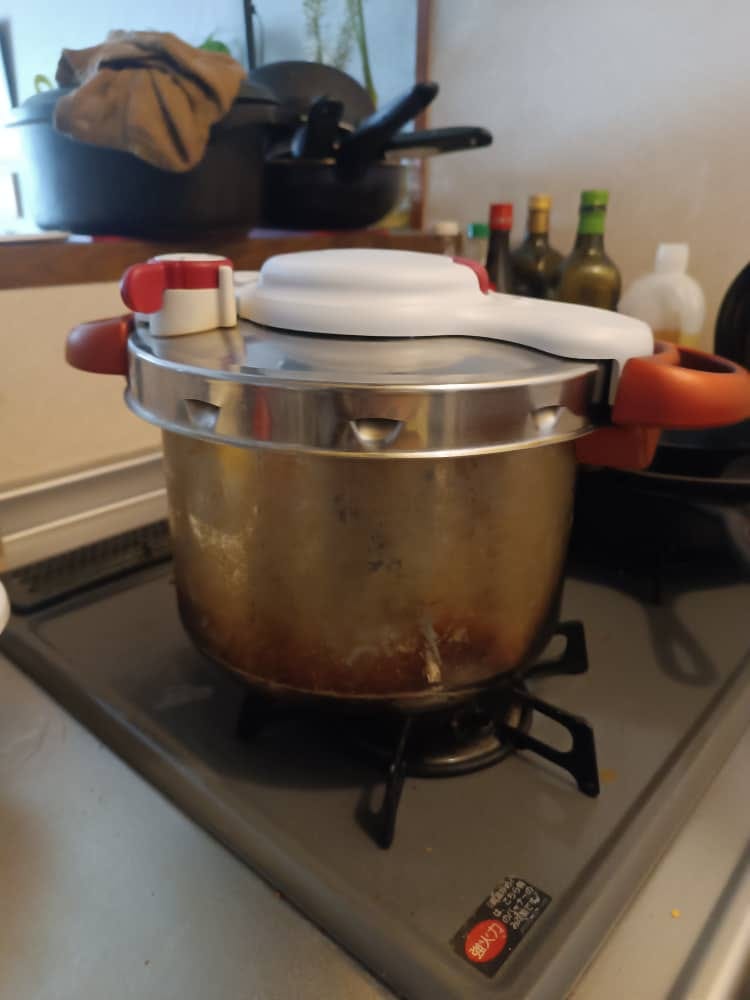My Cooking Disaster and What You Can Learn from It.
Reflections and thoughts on disasters, failures and normal accidents.
People have studied disaster and failures in many forms and ways. We study the disaster of a nuclear meltdown. We study architecture and structural failures. We study the disaster of the 98th academy award (AKA the Best Picture Snub of Moon Light).
But today, I want talk about my greatest cooking failure.
An expensive piece of meat
It was my last month in Japan for the year 2023 and I wanted to cook a good stew for the family. The power of stews is that you put everything in and some hours later, it ends up tasting good. Not much skill involved.
I also planned to cook for 2 meals in total, and I found an excellent recipe to follow!
First off, I went to find the meat. I went to 4 different grocers before I found the right cut, Rough Flank. It’s a cut of meat that is not easily available, so I ended up cycling up until I was exhausted. I finally found a butcher, and I made my most expensive meat purchase in my life.
I brought it home and started prepping.
Overconfidence is a Slow and Insidious Killer.
I was using a pressure cooker this time round, and I have used it numerous times before. The pressure cooker is not one of those fancy ones that you can activate with a push of a button. This was a stovetop pressure cooker, meaning that it needs to go on top of a flame, and you need to time it manually and adjust as you go.
I got all the ingredients ready, dunked all the ingredients in and started cooking.
10 to 15 minutes in. I checked the pressure cooker and discovered that I didn’t actually pressure locked it.
Without checking the water levels inside, I locked it and let it pressure cook thinking it should be fine.
After pressure cooking for 15 minutes. I headed to the toilet and came back.
The fire in the stove went out. Thinking nothing much of it. I turned its back on.
Ten minutes later. I smelt a burnt smell.
I rushed to the pressure cooker to open it.
Then I saw it.
The expensive piece of meat that I put so much effort to find and prepare was 70% burnt.
I was devastated.
My heart sank with doubts of self-worth of my cooking skills plague me. My money was burnt. I needed to check whether the pressure cooker was damaged. I need to still prepare dinner for the family.
How could did I fail in such a fairly straightforward task? This was a usual for me.
So, what went wrong?
I reflected and recalled the entire journey to see where I had gone wrong.
It seemed to me, that it wasn’t entirely my skill issue. Rather, the failure was a result of a combination of three smaller factors in retrospect. Each of these factors on its own is not sufficient to result in disaster, and to be quite frank, very easy to deal with.
But the combination of the right factors in the perfect storm creates a synergistic effect. After all, the sum is greater than its parts.
Let me elaborate.
Overconfidence/Tiredness
I cycled to 3 different places to purchase the meat and I had to prepare the meat as well. So, it slipped my mind to pressure lock the pressure cooker.
Then when I discovered that I didn’t pressure lock it, I pressure locked it without checking. I was so familiar with the pressure-cooking process, I assumed that everything was fine.
No clarity/Feedback mechanism
You can’t actually see through the pressure cooker to check the food, and you can’t midway through the cooking process simply open the lid (You would need to un-pressurize it).
Compared this to your standard cooking (Using pots and pans), you always can gauge the status of the food a glance.
The lack of visual feedback didn’t alert me of anything. Up until I smelled it, which was obviously too late.
Unclear Safety Mechanisms
Lastly. I discovered in retrospect that when I went to the toilet and the fire turned off. It was actually a safety mechanism. The stove has a built-in sensor that detects when the pot is way too hot (AKA Burning), it is normally accompanied with a small beep.
I was aware of this. But I was in the toilet, so I didn’t hear the beep. When I returned, I turned it on to continue the cooking still. It did not occur to me that the lack of fire was an indicator of my food being burnt.
So What?
In the 1980s, Charles Perrow wrote a book called Normal Accidents. In the book, he talks about that there are systems so complex and tightly coupled that accidents are inevitable. It’s not a matter if an accident would happen, but rather a question of when it would happen.
It’s a fascinating read, because it’s counter intuitive.
When there’s a failure or disaster, the tendency is to blame the operator that is closest to the disaster. Eg: The person who is leading the project.
That I think is a surface level analysis of the issue. A true detective goes beyond that. Failure is the outcome of poor processes and systems.
Is my pressure-cooking story a complex system?
I doubt so. But it reminded me that even in such a simple scenario, how different factors contribute and interplay with one another to result in failure. What so an even more complex system?
The story above is not about only about cooking. It can be applied to most other domains as well.





